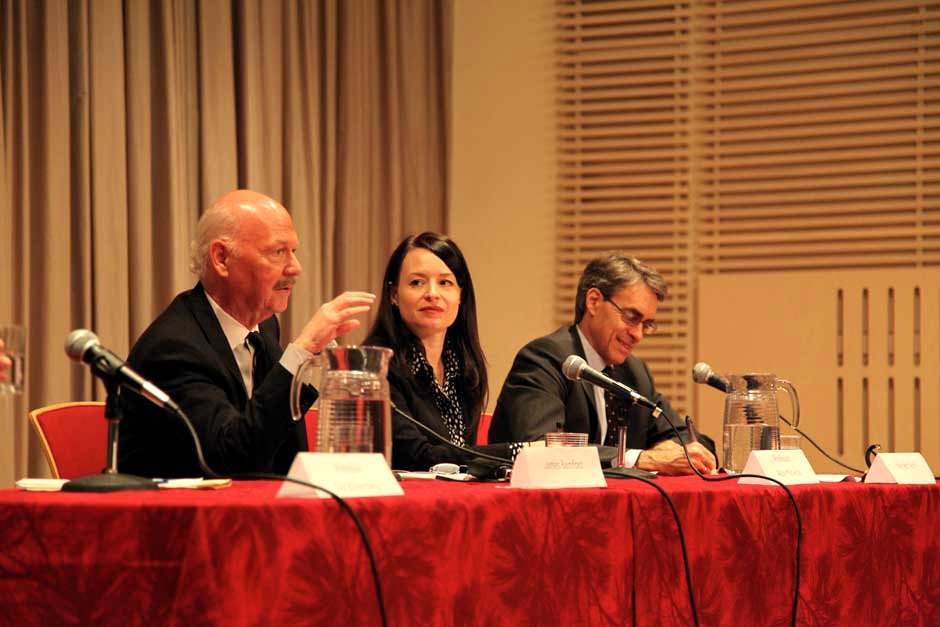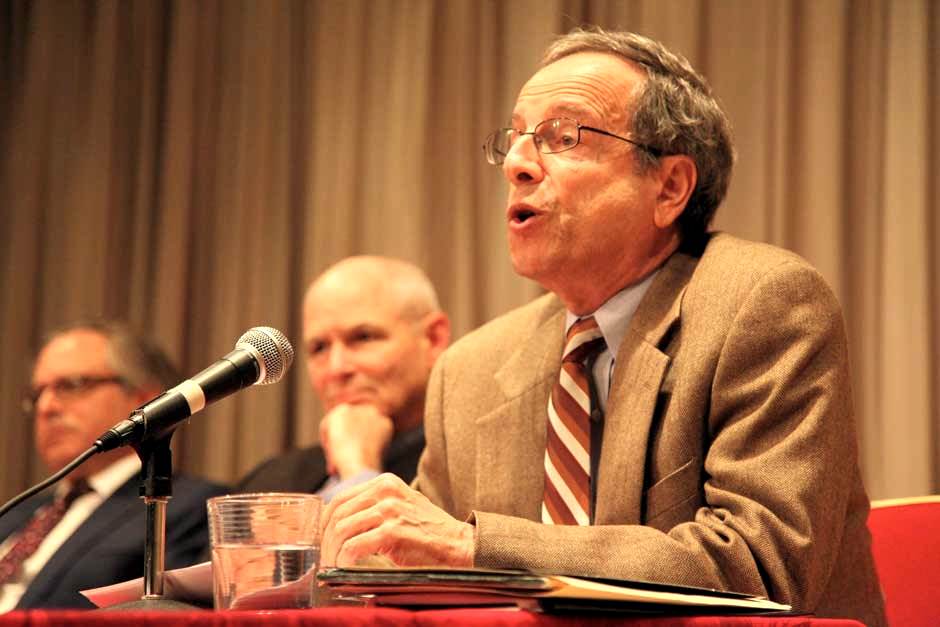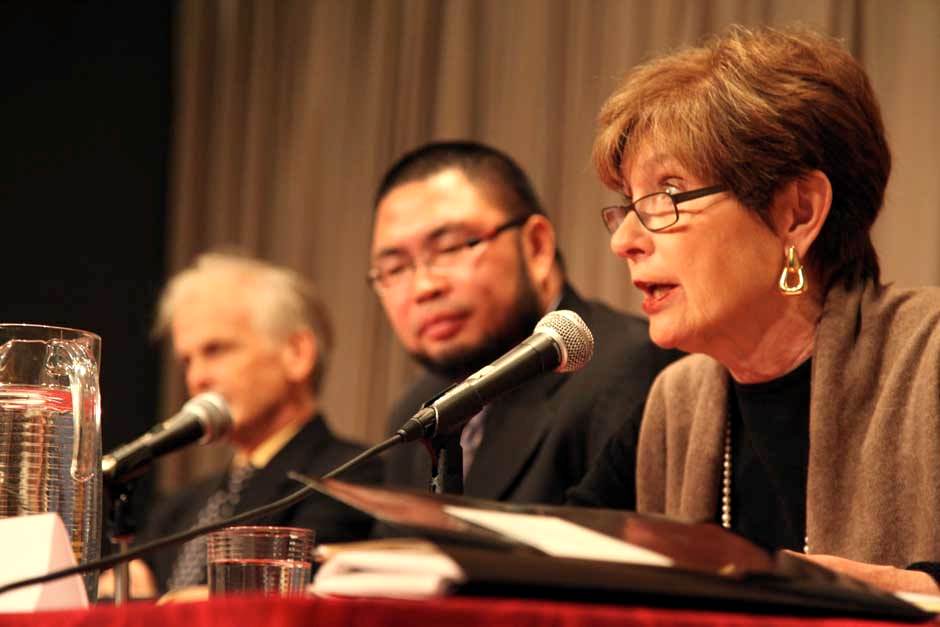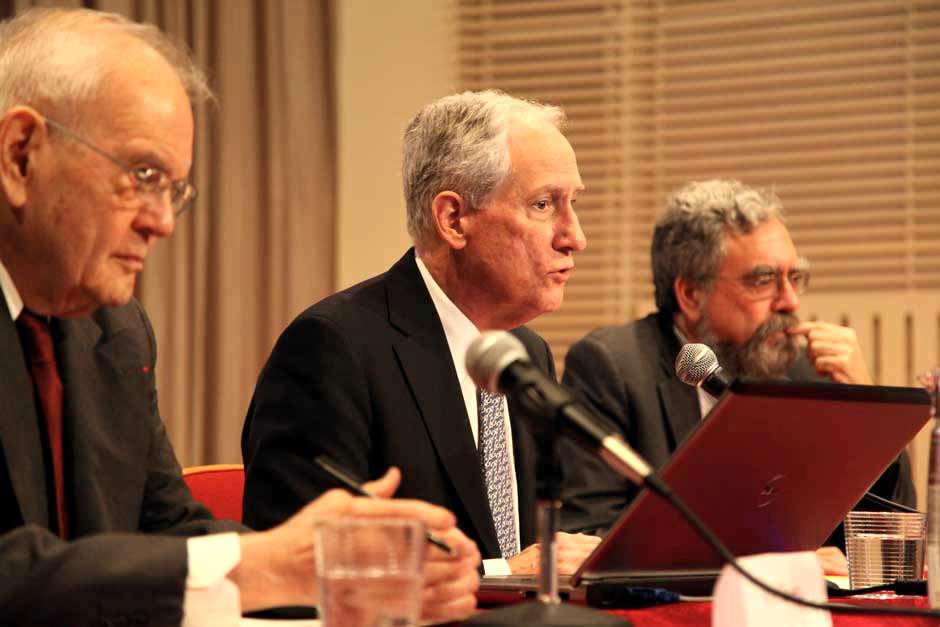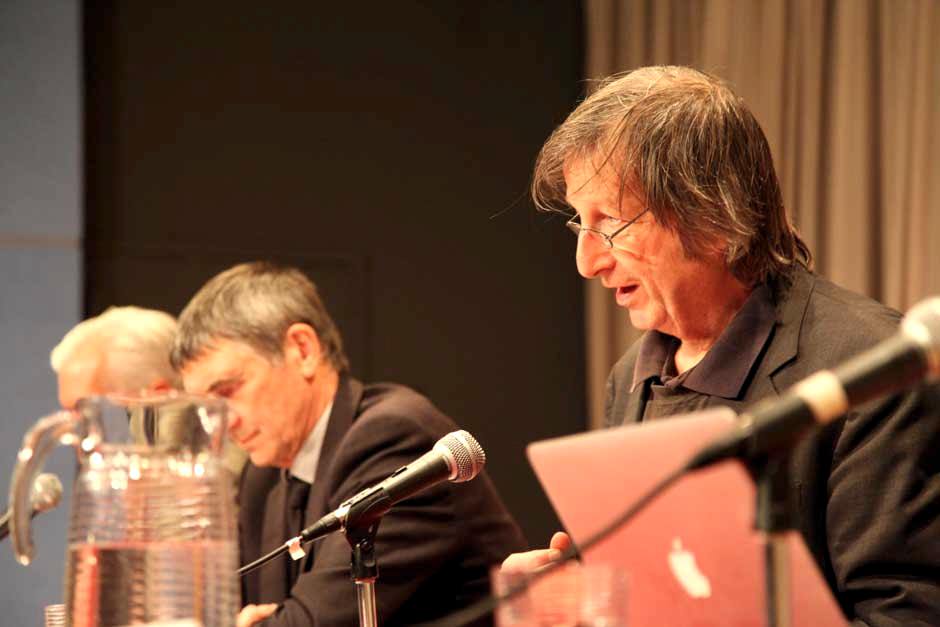On October 30–31, 2013, The New York Review of Books held a conference, “Power, Privacy, and the Internet,” at Scandinavia House in New York City, with generous support from The Fritt Ord Foundation of Oslo, PEN America, Sarah and Landon Rowland, The Europaeum of Oxford, The Lead Bank of Kansas City, and the Institute for Public Knowledge at New York University.
Simon Head, director of programs for The New York Review of Books Foundation, addressed the theme of the conference:
The Internet is a transformative technology of our times and it is changing our lives as perhaps nothing else has done since the coming of the telephone, the telegraph, and the mass production automobile a century and more ago. Where the Internet surpasses these earlier technologies is in the speed with which its reach is expanding—in our contacts with one another through Twitter and Facebook, in what we read, hear, and buy; in our dealings with business, government, colleges and schools, and they in their dealings with us. Whether we like it or not we are caught up in these flows of technology and as we are carried along by the flows, some barely visible to us, it becomes increasingly difficult to stand back and distinguish between what is good about these innovations and what is not.
We are pleased to present the following recordings from the event. Listeners can also stream or download the audio from the Review’s account on Soundcloud.
Panel I: Governments, Corporations and Hackers: The Internet and Threats to the Privacy and Dignity of the Citizen
Eric Klinenberg, director of the Institute for Public Knowledge at New York University, chairs a discussion with James Bamford, author and expert on the National Security Agency, Alice Marwick, professor of communications at Fordham University, and Kenneth Roth, executive director of Human Rights Watch.
Panel II: The Internet and the Future of the Press
Robert Silvers, editor of The New York Review of Books, chairs a discussion with Michael Schudson, professor at the Columbia University Graduate School of Journalism, Nicholas Lemann, professor and former dean of the Graduate School of Journalism, and Michael Massing, contributing editor at Columbia Journalism Review.
Panel III: The Internet, Repression and Dissent
Suzanne Nossel, executive director of PEN American Center, chairs a discussion with Perry Link, professor of comparative literature at the University of California, Riverside, Chinese writer and internet activist Wen Yunchao, and Amy Knight, historian of Russia.
Panel IV: The Internet, the Book, the University and the Library
Robert Silvers chairs a discussion with Robert Darnton, Carl H Pforzheimer Professor of History and University Librarian at Harvard, and Anthony Grafton, Henry Putnam University Professor of History at Princeton.
Panel V: The Internet, the Economy and Production
Philip Howard of Common Good chairs a discussion with Jeff Madrick, fellow at the Roosevelt Institute and editor of Challenge magazine, Morten Kyng, professor of Computer Science at the University of Aarhus, and Simon Head, senior fellow at the Institute for Public Knowledge, NYU.



